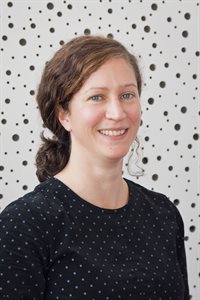
March 8, 2023, by aczjb1
IWD23: Women in Leadership – Dr Isobel O’Neil
For International Women’s Day 2023, Dr Isobel O’Neil reflects on her recent experience of being on a Women in Leadership Panel for the National Literacy Trust in a Nottinghamshire school.
As someone who devotes much time and effort to supporting women with their personal development (through my role as a director at the My Way Project CIC) and with supporting effort towards gender equality at Nottingham University Business School (as Athena Swan lead), I was delighted to be approached by the National Literacy Trust’s Women in Leadership Programme manager, Tiersha Wilson. Tiersha was recruiting a diverse group of women to join her for a panel session in early February at the Joseph Whitaker School in Rainworth, Nottinghamshire.
With some trepidation – I had not stepped foot in a secondary school since leaving as a 16 year-old to go to college – I agreed. After all, I’d coped fairly well lecturing for 10+ years, how hard would it be to chat about empowerment, leadership, and careers to over 100 16-18 year olds?
Having met the other speakers – fantastically inspiring and articulate women including Addie Kenogbon (Cartwright) Roisin Ordonez (Experian) Suki Tonks (Browne Jacobson) and Rachael Halaburda (Notts TV) – we settled in to listen to some of the young women’s hopes and fears. They covered ambitions – to be a firefighter, go to university (I was happy to hear that one!), to be a psychologist and more broadly to be happy and successful. Yet the fears were stark, ranging from concern around failing to achieve the right grades, disappointing one’s parents, making the wrong choices… these were brave young women in many ways ready to take on the world, yet in other ways utterly anxious about what the future held and already hinting at underlying imposter phenomenon feelings.
Looking around at the panellists I could sense, like me, we all wanted to speak from the heart about why these fears do not need to persist. We spoke of our different life pathways, of how mistakes become successes, how opportunities emerge from surprising events, and I hope we subtlety – and at times not so subtlety – shook-up viewpoints about what it was to be an empowered woman carving out success in our very varied roles and workplaces. That diversity of experiences across different sectors – yet strikingly similar mindsets – felt like a very powerful combination for the young women to hear. After the event Tiersha shared some feedback from one of the young women, who said that “the session felt like it had literally changed my life.”
For us speakers, we recognised we’d been part of something special too – we are now all connected – through LinkedIn of course – and Suki Tonks is looking at getting us round the table to see how we can collaborate in the future. Ultimately, this is why I know my job as a woman in academia is a real privilege; I can choose my citizenship activity and choose to extend connections beyond the campus to chip away at making a difference. Since the panel I have been thinking hard about what could emerge from this- how could it literally change my life too? It is too early to say, but for now but the experience has opened my eyes to think more about the transitions of young people, their views and biases – perhaps unfounded, perhaps based on some persistent structural barriers – about the workplace and what careers are in the 2020s and what will change for the better over the course of this next generation’s working lives.
Sixteen year-old me stumbled out of my secondary school into FE college, full of ambition with a dose of feistiness. I manged to maintain enough passion for learning to get me to university and the rest is history. But by stepping back into a Nottinghamshire secondary school in 2023, I could well have just stumbled upon an important, new direction for research and collaborations for supporting young women. After all, International Women’s Day 2023 heeds that “together we can forge women’s equality. Collectively we can all #EmbraceEquity.”
The Women in Leadership Programme stems from the National Literacy Trust’s Words for Work programme – which gives young people from disadvantaged communities the literacy and communication skills they need to reach their potential.
More specifically, the Women in Leadership programme aims to challenge inequalities in employment opportunities. Read more about it on their website.
No comments yet, fill out a comment to be the first

Leave a Reply